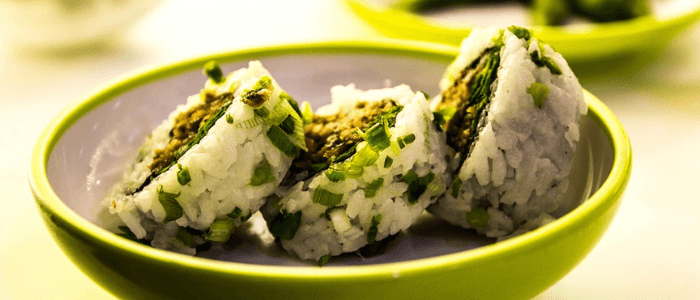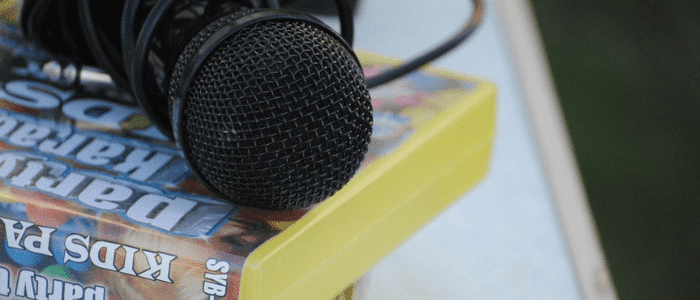Japanese Words We Use in English
If you’ve ever wondered how hard Japanese is to learn, well I’ve got news for you…you probably know a bunch of Japanese words already!
Thanks in part to Japan’s pop culture impact on the west, Japanese vocabulary has made its way into Western culture. In this post, I’ve listed a handful of Japanese words we all use in English 🙂
Japanese food
Japanese restaurants continue to pop up all over North America and I’m sure you’ve eaten at one before. Below are a few words that you’ve probably come across and some new ones that you should know next time you eat out.
Hibachi (火鉢, hibachi): Lots of hibachi – style restaurants are in America, hibachi refers to a special type of grill.
Sushi (寿司, sushi): Most should know what sushi is, even if you don’t like it. It includes rice and raw foods, especially raw fish, oftentimes rolled.
Sashimi (刺身, sashimi): Very fresh fish sliced pretty thinly, you can get this at various (perhaps pricey) Japanese-style restaurants around the world.
Teriyaki (照り焼き, teriyaki): This refers to foods cooked in that sweet sauce you know and perhaps love. Though in English, it is used to cook all sorts of meats, it’s mostly just chicken in Japan that is cooked in this way.
Tempura (天麩羅 or 天ぷら, tenpura): This should be a fairly familiar term and specifies a certain type of deep-fry.
Panko (パン粉, panko): On a related note, this refers to a certain type of breading made with white bread without crust.
Edamame (枝豆, edamame): Those soybeans that is served whole in the pod, you know the ones.
Adzuki beans (小豆, azuki): This refers to a certain type of bean often used in Japanese sweets.
Miso (味噌, miso): This refers to a bean paste. Perhaps you’ve had some miso soup before at your local Asian style restaurant?

Tofu (豆腐, toufu): This is a bean curd type thing that you can probably get at your local supermarket. It can be used in vegetarian dishes in the place of meat.
Ramen (ラーメン, ramen): This refers to the Japanese spin on a Chinese noodle soup that we all know and presumably love due to how available and affordable it is to get instant ramen in so many places.
Sake (酒, sake): In Japan, this refers to alcoholic beverages in general, but in English this refers to 日本酒 (nihonshu), a certain type of wine brewed with rice.
Art and Entertainment
Various arts and such have kept their name from Japan and made their way into the English-speaking world. Here are some examples of what I mean:
Haiku (俳句, haiku): This refers to a short poem you probably know of, wherein you have three lines of 5-7-5 syllables. Technically, you’re supposed to count each 拍 (haku) or mora, which is the length of a short syllable in English, instead of each syllable, but that’s splitting hairs.
Tanka (短歌, tanka): This is also a type of short poem you may have studied in literature class, but is probably less well-known than the haiku. Similarly, you count each 拍 (haku) or mora as you do in a Haiku, but with the rhythm of 5-7-5-7-7 as opposed to 5-7-5 in a haiku.
Karaoke (カラオケ, karaoke): A popular pass time wherein people try to sing along with a popular song. Whereas elsewhere there may be just “karaoke night” at a bar or such, there are many places that are pretty dedicated to purely providing booths for karaoke.

Koto (琴, koto): A traditional Japanese instrument with 13 strings. If you’ve never run into one, you may not know about this, but many have probably heard the term before.
Shamisen (三味線, shamisen): Again, if you don’t have an interest in instruments, it’s possible you don’t know about this one, but I think many do know of it. It’s a musical instrument with three strings.
Kabuki (歌舞伎, kabuki): This refers to traditional Japanese Kabuki theatre. Perhaps you’ve heard some of the sound effects, as they have a fairly unique character.
Sumi-e (墨絵, sumie): This refers to Japanese ink painting. You’ve probably heard of it in art class.
Origami (折り紙, origami): Paper folding. You’ve probably tried some origami yourself, and know how difficult it can be.
Geisha (芸者, geisha): Traditional Japanese entertainer, as you may already know.
Bonsai (盆栽, bonsai): This refers to tray gardening and dealing with that little tree, I’m sure you know of it and may have seen some bonsai trees yourself.
Manga (漫画, manga): In English, this refers to Japanese comics. In Japan, however, it refers to comics in general.
Warriors and Martial Arts
Throughout time, cultures all over the world have found the need to defend themselves from violence. This has resulted in many different types of warriors and styles of fighting. Here are some from Japan:
Shogun (将軍, shougun): This refers to the “general” in feudal Japan. For a time they were essentially serving as the rulers of Japan as they were more powerful than even the emperor, as you may know from history class.
Ninja (忍者, ninja): Covert operatives in feudal Japan. We all know them from media representation of ninja. They were technically a class of samurai.

Samurai (侍, samurai): We also know these from the media as they are displayed often as sword-fighting warriors. They were the warriors of the Edo period of Japan.
Aikido (合気道, aikidou): A certain type of martial art that is pretty popular in Japan. It is often treated with a lot less respect and is seen as one of the “weaker” martial arts in United States martial arts circles. Regardless, I’m sure you’ve heard of it, perhaps due to a certain Mr. Seagal.
Jiu Jitsu (柔術, juujutsu): This martial art is pretty classic and revolves around close combat.
Judo (柔道, juudou): The sport of Judo, a martial art that focuses on balance and leverage in conjunction with quick movement.
Sumo (相撲, sumo): The sport wherein you try to push the opponent out of the ring. It probably conjures up images of large, rotund Japanese men.
Dojo (道場, doujo): Where martial arts training happens! You might have a few dojos around you!
Miscellaneous
Here are some other Japanese words you know from their being used in English:
Tycoon (大君, taikun): In Japanese, 大君 (taikun) refers to a high commander. It would be taken and later used to refer to wealthy business leaders in the English-speaking world.
Kimono (着物, kimono): The long robe that is often worn to special events.
Geta (下駄, geta): Those stereotypical wooden clogs! You’ve probably seen this on a movie or TV show by now.
Futon (布団, futon): A flat mattress. In English, it can also refer to a sofa that changes directly into a bed and vice versa.
Tsunami (津波, tsunami): A tidal wave. I’m sure you know of this natural disaster.
Karoshi (過労死, karoushi): Death from overwork. Perhaps you haven’t heard of this one, which would probably be for the best, but many know of Japan’s karoshi problem, and there’s even been legislation to help it.
Sudoku (数独, suudoku): Those number puzzles with all the squares, you’ve probably seen it before. It can be quite difficult to do! When I was younger, I spent quite a lot of time with these puzzles. One could say that for a child, I was a sudoku geek.
Otaku (オタク, otaku): In Japan, otaku refers to a geek of anything in general. In English, it refers more specifically to Japanimation/manga geeks.
Emoji (絵文字, emoji): You know emojis. I’m sure some of you know them all too well.
Hopefully Japanese doesn’t seem too foreign to those reading this article. It’s all too familiar to us English speakers! If you have an interest in learning Japanese, or a variety of other languages, consider using LingQ to learn, expanding your mind and world.
Learning Japanese (the easy way)
Alright, now that you already have a nice chunk of Japanese in your vocabulary, it’s time to start studying! And the best way to learn Japanese online is using LingQ.
Take a peek at the video above and see how you can use LingQ to study content YOU love. That’s right, you can learn Japanese using LingQ’s content, videos from YouTube, podcasts, blogs, and so much more. Also, LingQ’s language learning apps are available for both Android and iOS, which means you can take your lessons on the go and study anytime, anywhere.
Check LingQ out today and start your journey to fluency. 🙂
***
Caiman Cotton is a freelance Japanese translator who has studied the language for years. He hopes to one day also study Latin.

